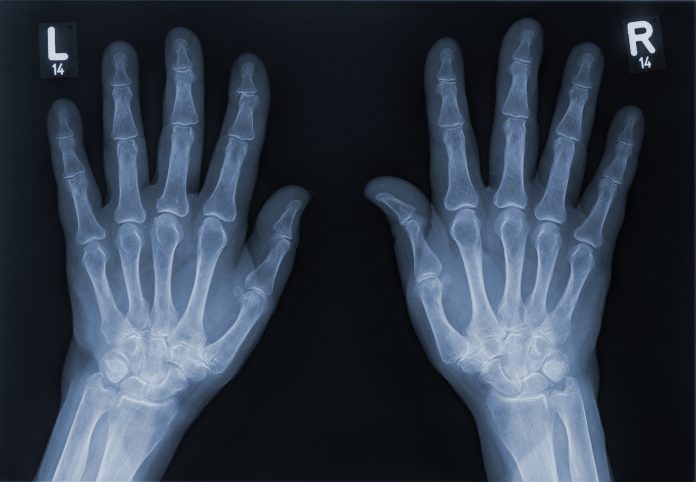Tracey Loftis, Head of Policy, Public Affairs and Engagement at Versus Arthritis, tells us about the prevalence and mental and physical impact of osteoarthritis and the measures needed to improve the provision of care
Osteoarthritis is a prevalent and often debilitating condition that has a massive impact on people’s lives. It demands the attention of policymakers in the UK.
Understanding the prevalence, risk factors, and impacts of conditions like arthritis – often ignored and dismissed – is crucial in developing effective policies that will mitigate its impact on the NHS and more widely across society.
Prevalence of osteoarthritis
Osteoarthritis affects over ten million people – that’s one in six of us – and is one of the biggest causes of pain and disability in the UK. New research indicates that by 2050, over a billion people worldwide will be living with osteoarthritis, as an ageing population causes increasing strain on healthcare systems around the world.
Osteoarthritis is diagnosed in more than 350,000 people in the UK each year and can affect any joint in the body, but it is most common in the knees, hips, and hands. It’s a common and harmful myth that it is simply ‘wear and tear’ in the joint as we get older. While our joints are made of complex living tissue that our bodies constantly repair and maintain, osteoarthritis occurs when our bodies can no longer do this effectively. The cartilage becomes thin, and the joint cannot move as easily as before, causing pain, stiffness, and sometimes swelling as the body attempts to repair the joint.
Some known genetic and environmental factors can increase a person’s risk of developing arthritis. Osteoarthritis mainly affects older people but can affect you at any age. Most people start to develop symptoms after their mid-to-late-50s, and by 75, almost one in two of us will have the condition. Of the ten million living with osteoarthritis in the UK, six million are women. Another contributing factor can be obesity, as those who are overweight are at greater risk of developing lower-limb osteoarthritis than people with a body weight in the ‘healthy’ category.
Whatever form it takes, arthritis is usually a long-term condition, and two in three people with arthritis will require medication or surgery at some point in their lives. Like any medication, medicines for osteoarthritis can have side effects or increase the risk of developing other health problems.
The impact of osteoarthritis
The impact of osteoarthritis cannot be underestimated. On top of the daily pain and fatigue of their condition, isolation can have a huge toll on people’s mental health. It can lead many people to experience depression and anxiety. Over time, this impact on professional and social life can lead people to feel isolated from family, friends, and society. If not treated properly, it can dominate every aspect of a person’s life, including their mental, financial, and social wellbeing. At Versus Arthritis, we regularly hear from people who say the pain of arthritis robs them of many of the things that make life worth living.
Treating and managing osteoarthritis
While there is no cure for osteoarthritis, people with the condition often need to explore and find different treatments – from medication to lifestyle changes – to manage their symptoms. Taking preventive lifestyle measures can reduce the risk of developing the condition. Policymakers can play a pivotal role in promoting public awareness campaigns that highlight the importance of maintaining a healthy weight, engaging in regular physical activity, and preventing joint injuries. Campaigns like ‘We Are Undefeatable’, developed by 15 leading health and social care charities, including Versus Arthritis and backed by expertise, insight, and National Lottery funding from Sport England, aim to support and encourage 15 million people with a range of long-term conditions to be more active.
Additionally, healthcare systems should focus on improving access to education and resources that enable individuals to make informed lifestyle choices. This may include promoting healthy eating habits, providing access and support to physical activity programs, and encouraging a workplace culture that recognises the impact of musculoskeletal conditions. Encouraging assessments and modifications in the workplace that reduce joint strain and promote safe, ergonomic practices can contribute to a healthier and more productive workforce and potentially fewer days lost to sickness.
For those with very severe osteoarthritis, usually, the most effective treatment is joint replacement surgery. Knee and hip joint replacements are clinically the most cost-effective procedures that can transform lives by restoring people’s mobility and reducing pain. That is why the NHS backlog and very long waiting times for surgery have had such a detrimental impact on many people with arthritis – and must be addressed.
The future: Changing the lives of osteoarthritis patients
Versus Arthritis is calling for a step-change in support for people with osteoarthritis in three key areas:
- Personalisation with a more holistic relationship developed between the person with osteoarthritis and the healthcare professionals providing care, whereby the full range of treatments and support is offered.
- Innovation through improved diagnosis and coding of osteoarthritis in primary care. This is urgently needed to better understand the prevalence of osteoarthritis at a local level, as well as maximising the use of digital technology.
- Prevention of osteoarthritis must be a public health priority, both before symptoms are present and after people have symptoms to prevent progression.
With an NHS currently under incredible strain, healthcare professionals need further resources and support to better understand their role in promoting more personalised options like physical activity for people with osteoarthritis.
Osteoarthritis does have a substantial impact on people’s lives and, indeed, the NHS. It’s time that the condition was taken more seriously. In January 2023, the UK Government announced plans to tackle England’s biggest health challenges, and, for the first time, they’ve recognised musculoskeletal conditions, including arthritis, as a priority. The Government’s Major Conditions Strategy, expected to report in 2024, recognises the importance of multimorbidity as a leading problem for the country’s ageing population and that musculoskeletal conditions are a vital area for inclusion. Versus Arthritis has inputted into the strategy and welcomed the initial comments in the Interim Report for better employment support and data, which are much needed.
More broadly, good musculoskeletal health is essential for good lifelong health: that message must be spread far and wide across society and health systems.











